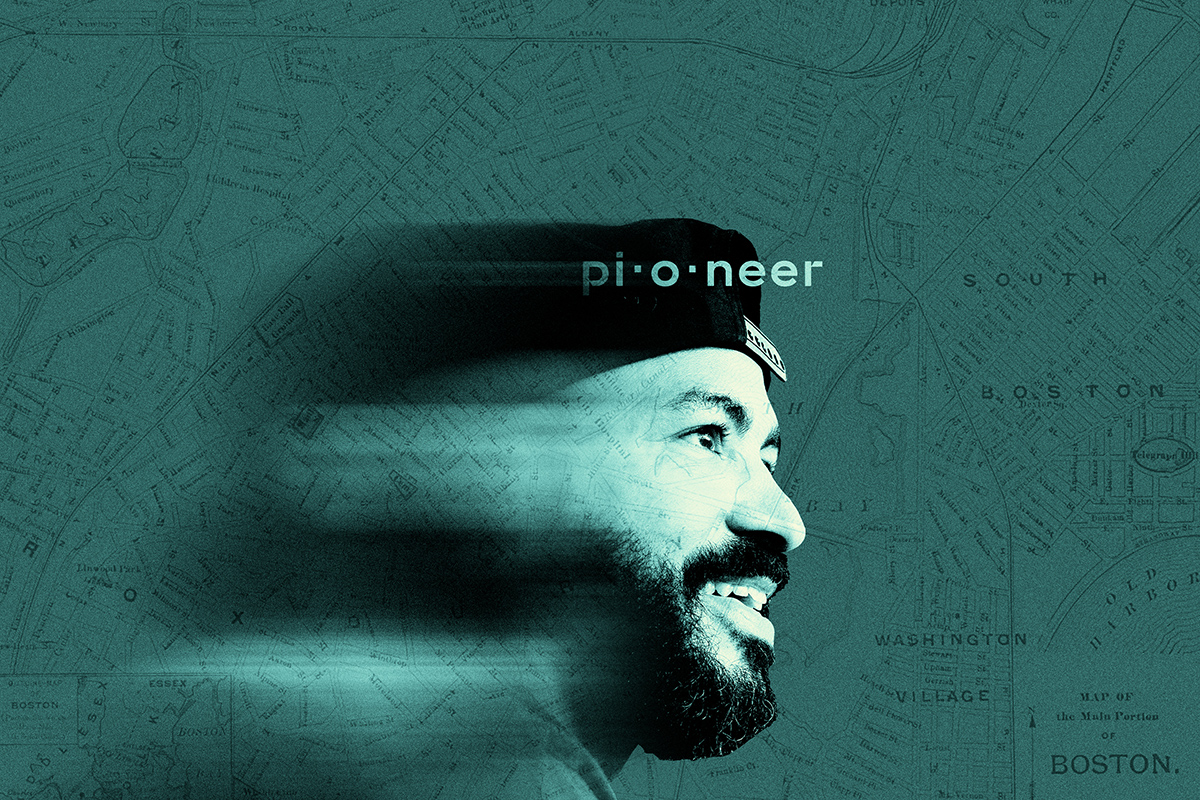Thirty-nine years after cofounding the New York Pioneer Club, Joseph Yancey was still seeking funding to support his consummate cadre of track and field athletes.
On April 27, 1975, Yancey, who had coached the team without payment since its inception, was honored at a $50-a-plate dinner at the Waldorf Astoria in New York City. In 1975, $50 would equate to $301.59 in the present day.
But still, after 39 years and 120 individual and team national championships across a variety of track and field disciplines, Yancey was struggling to financially support his club.
“We’ve managed to stay alive while doing it my way,” Yancey wrote in the New York Times on the day of the dinner. “I have never asked the big powers for money to stay in business.”
“If I had more funds, I could do more,” he avowed.
Fifty years later, Sidney Baptista could similarly use more funds for his upstart performance streetwear brand, PYNRS, which he established in 2020.
“I am actively always running out of money,” Baptista affirmed. “What’s different now, is my relationship with money – or running out of money – has changed. I don’t feel so anxious about it, because I just believe that it will get better, I believe that it’s coming.”
It can be assumed that Yancey held this very same conviction.
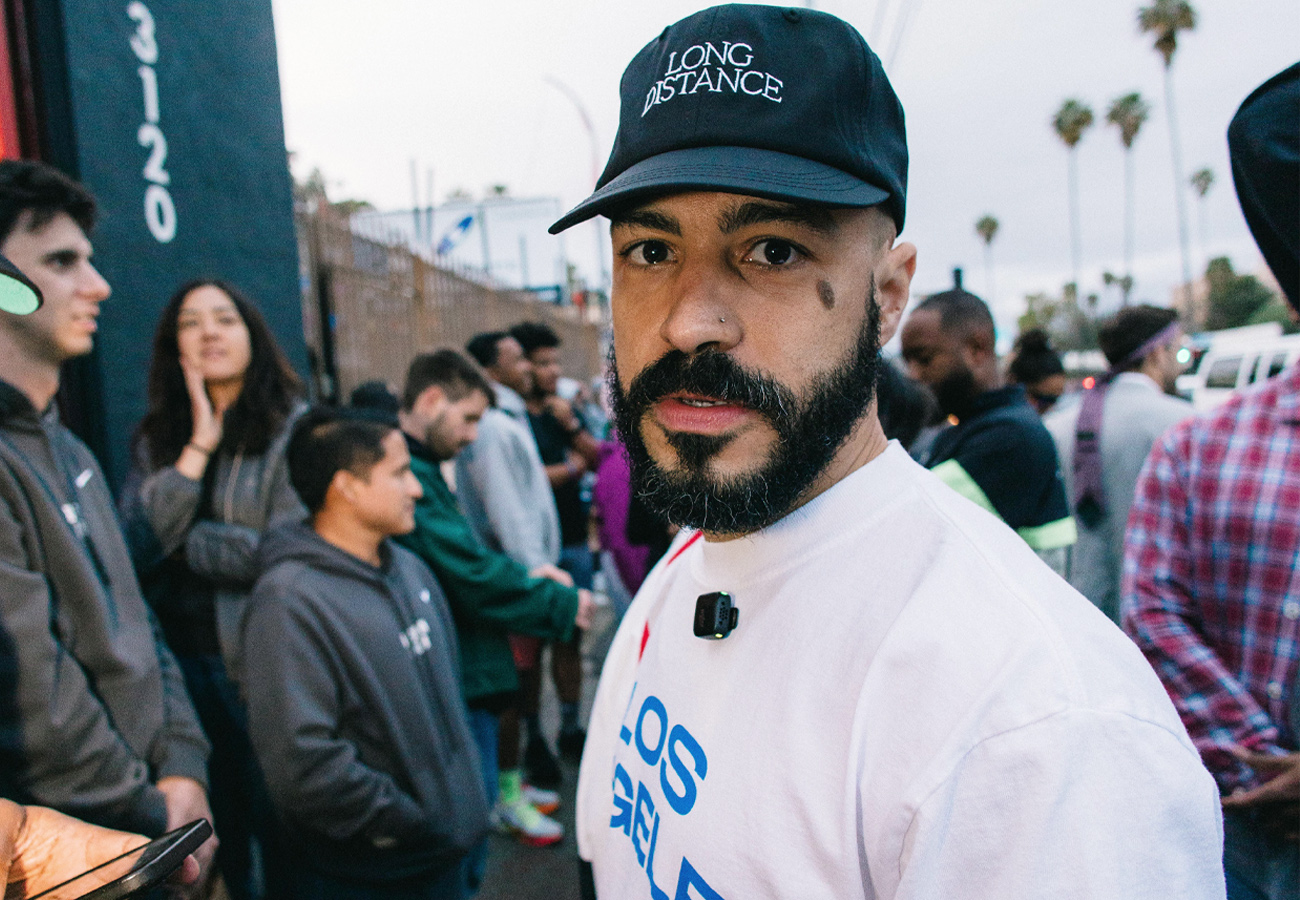
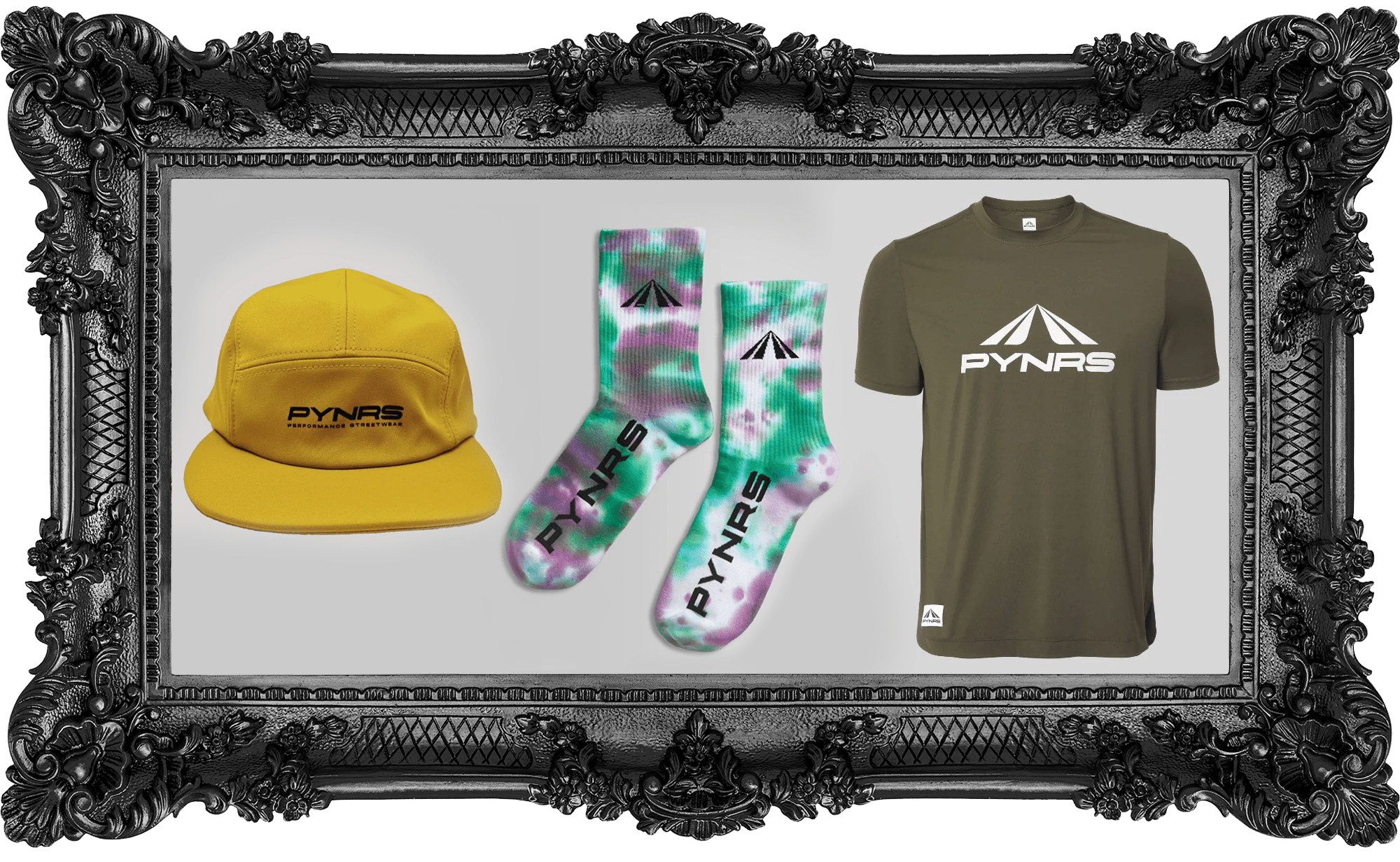
New York Pioneer Club >>
PIONEERS Run Crew >>
PYNRS
That the name PYNRS (pronounced pioneers) hearkens back to the New York Pioneer Club is no coincidence, nor is the Baptista-created intermediary that connects the two.
In 2017, Baptista, a born and bred Bostonian with roots in Cape Verde, started the PIONEERS Run Crew in his predominantly Black Boston neighborhood of Dorchester because he grew tired of trekking to posh area neighborhoods like Back Bay — where the Boston Marathon ends — to join a group run.
Baptista rarely, if ever, saw anyone running in his neighborhood and wanted that to change.
The newly created crew was named after New York’s own Pioneer Club, which was established in Harlem by Yancey along with Robert Douglas and William Culbreath in 1936 as the nation’s first integrated run club. At the time, Black, Jewish and other minority athletes were not permitted to join many recreational teams in the city.
Nearly 90 years later, the Pioneer Club remains the earliest prototype for today’s ongoing and increasing initiatives for inclusivity in running. With PIONEERS, Baptista sought to pay homage to this revolutionary club.
The crew attracts runners of all abilities and races and thus, as diversity, equity and inclusion started becoming a trending topic in the early 2020s, also reeled in the interest of running brands that wanted to feature the club in their marketing initiatives.
Baptista recalled working with one brand that put PIONEERS runners in its gear and took some stylish photos without providing any compensation. Additionally, Baptista had previously noticed that many offerings from that company and other big running brands were not great fits — physically or aesthetically – for himself and many members of the PIONEERS Run Crew.
He saw firsthand that his crew and chunks of urban culture were artificially enhancing the optics of brands with which they did not identify, so Baptista sought change.
In 2019, he came up with the PYNRS brand identity for a performance streetwear company that he envisioned would run the culture aspect of the sport. In 2020, after months of navigating the early stages of both the COVID pandemic and creating a brand that could compete in an already saturated running apparel market, Baptista launched a crowdfund with a limited product run and raised $35,000 in six days and $50,000 in just three weeks.
He also poured his own money into the brand and maxed out zero-interest credit cards.
Instead of following the traditional route of securing investors and then creating product, Baptista went all-in on pushing product and then sought to recoup his investment.
“I wanted to get product out and get the community involved,” Baptista recalled, “then focus on going to get money.”
That initial crowdfunded windfall was great, but it didn’t last long.
It was not altogether different from Yancey’s Waldorf Astoria dinner.
Starting with his initial fundraising effort, Baptista — like Yancey — has managed to stay alive by doing it his way.
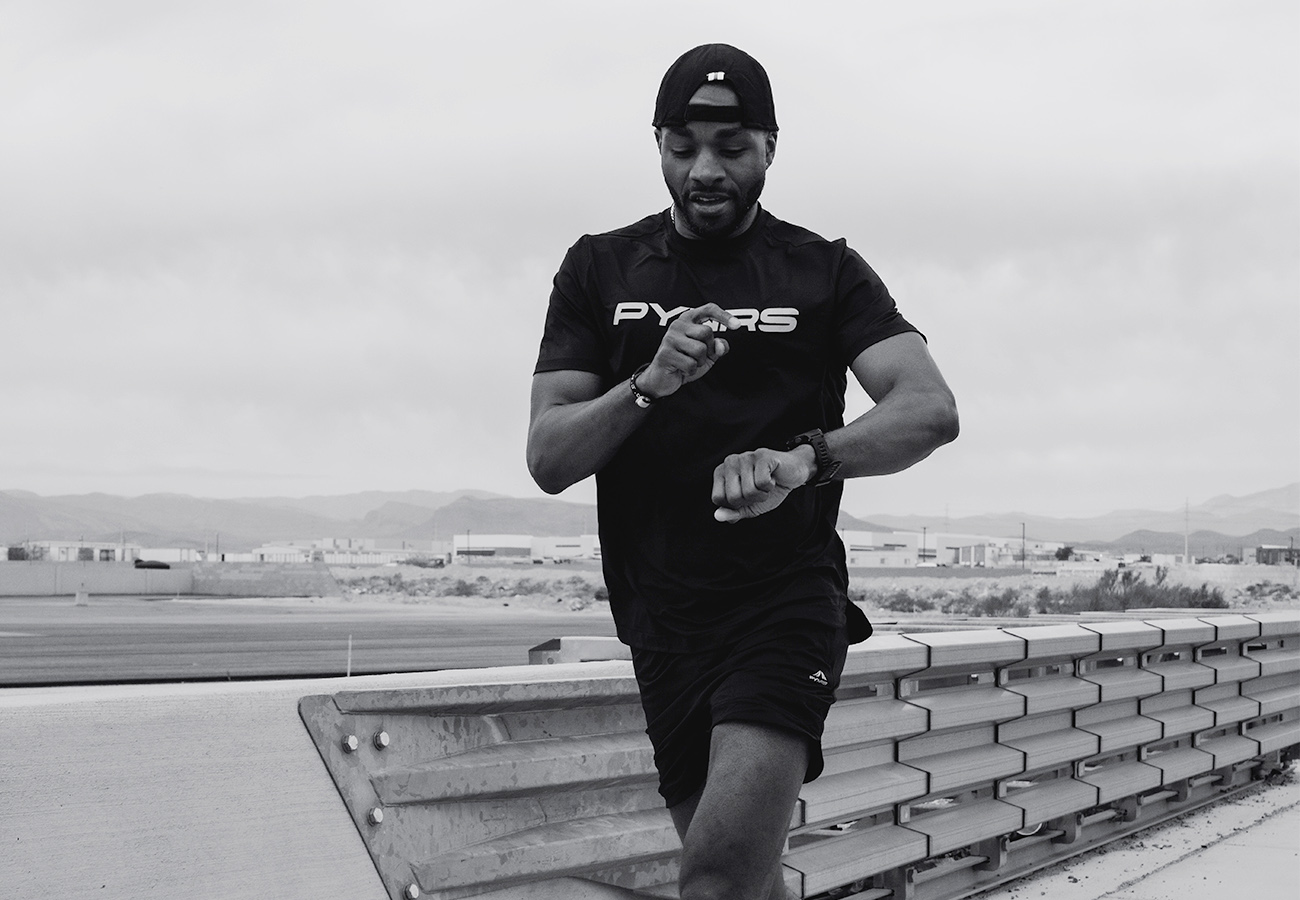

Consumer Connection >>
Profitability Over Ethnicity >>
The Clock Don’t Stop
PYNRS’ investors, so far, have been non-traditional in the running industry because the brand is deeply unorthodox in the running marketplace.
Ralph Greene Jr., CEO of Columbia Consulting Group and an advisor to PYNRS, said that the brand’s reason for being is to tap into an “ignored consumer base that is actually very vibrant and has its own life force.”
The ignored consumer base primarily consists of Black and other runners of color — the people that Baptista never saw running in Back Bay or his own neighborhood and beyond.
Greene, who spent 21 years in business and marketing at Nike and has since worked with dozens of sports technology and retail brands, observed that PYNRS establishes a much deeper connection and identification with its customers than other brands he’s worked with.
“It’s like a personal connection that immediately invigorates the audience,” he observed.
And perhaps not surprisingly, Baptista has had success in getting money from investors that are focused on minority-owned businesses of any type. In the last three years, PYNRS has received funding from Boston XChange, the REI Path Ahead Ventures Navigate program and Black Ambition.
“The way I’ve been approaching the pitch is that this is the only Black-owned running apparel company; we’re really changing the experience for people of color,” Baptista acknowledged. “And who better to understand those experiences than other people of color?”
Baptista’s background is among the primary criteria for these investments, while carving out a space in the otherwise white-owned world of running apparel is secondary. That he is creating distinctive events and experiences for runners of color is tertiary.
Baptista wants to change that, too.
“My pitch is so 2020,” he said. “Now, people have moved on. Being a Black-owned company, people don’t want to hear that. Now I can say this is a growing segment – this is how it’s going to be profitable and this is how we’re going to continue to grow – as opposed to just telling that story [about being Black-owned]. We’ve never changed what our focus and our mission are, but how we talk to investors will definitely change.”
PYNRS’ newest and most traditional running industry partner is Brooks, the Seattle-based running shoe and apparel company that boasted $1.2 billion in global sales in 2023 and top quarter-over-quarter market share in adult performance running footwear at U.S. retail since 2022. They partnered for PYNRS’ Chasing Majors Tour at the 2024 Berlin and Chicago Marathons, helping each brand, in its own way, increase its reach and brand awareness.
Greene described the Brooks partnership bluntly: “The reason they came to us is that they don’t know this market.”
Baptista has led the Brooks collaboration with both brands’ interests in mind.
“I know my community,” he declared. “If you’re working with me because you want to be talking to my community, then let me talk to them. Help me talk to them. Help me, with a bigger microphone, talk to them. And in our language. If you’re coming to me, it’s because of what we’ve already created.”
PYNRS can help Brooks create inroads outside of its core base of runners, and Brooks can help PYNRS create a shoe, which will debut as part of PYNRS’ fall 2025 collection.
The shoe will headline a new line of PYNRS products and accessories. Baptista was audibly excited when proclaiming that, “The whole of 2025 is the launch of fall 2025. We have a whole new…”
Then he paused, and his voice dropped. “Ah, fuck. I forgot to stop my watch.”
Baptista’s watch had continued for 11 minutes after he stopped his run to have this conversation.
Whether in business or running, he is always on the clock.
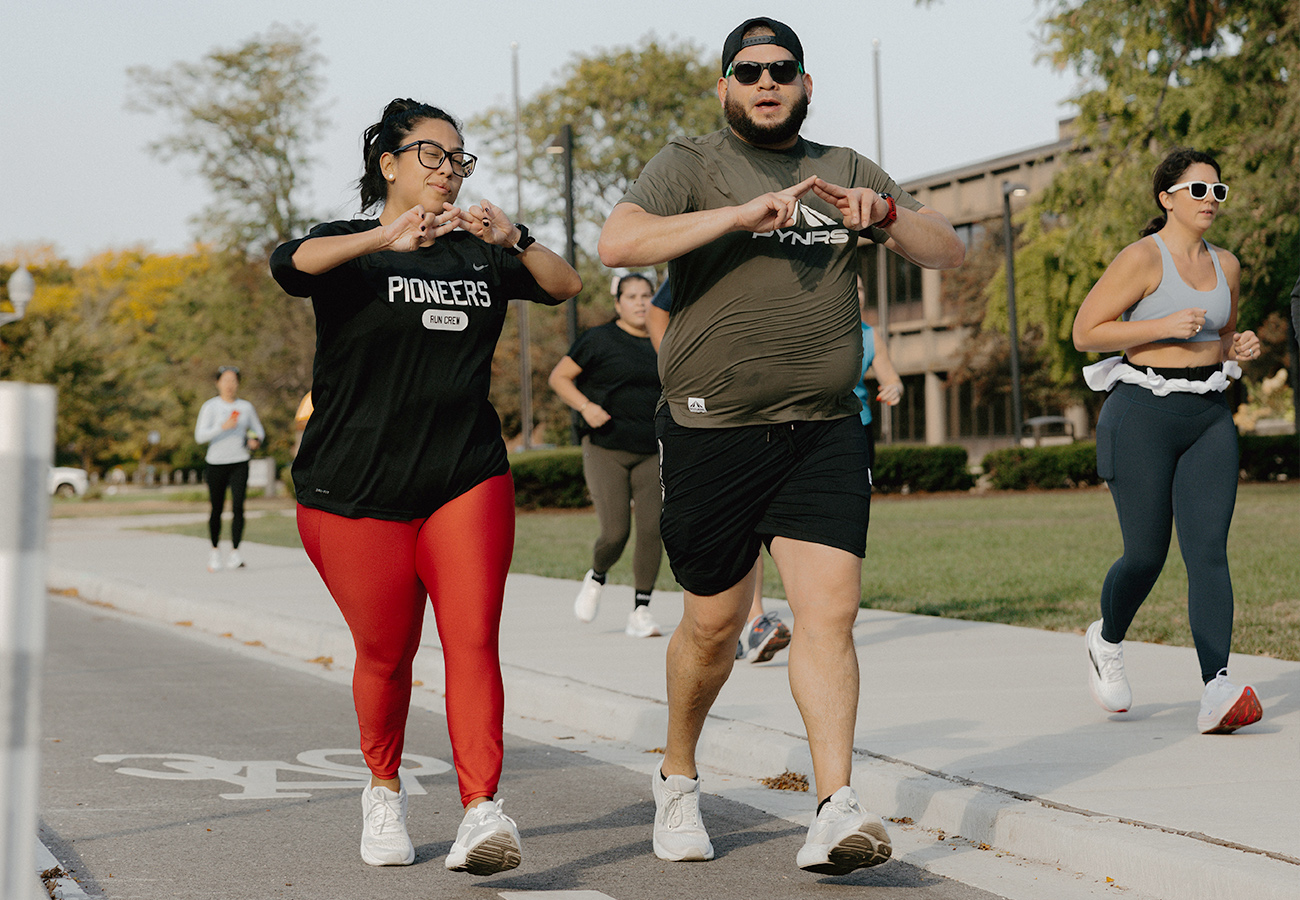
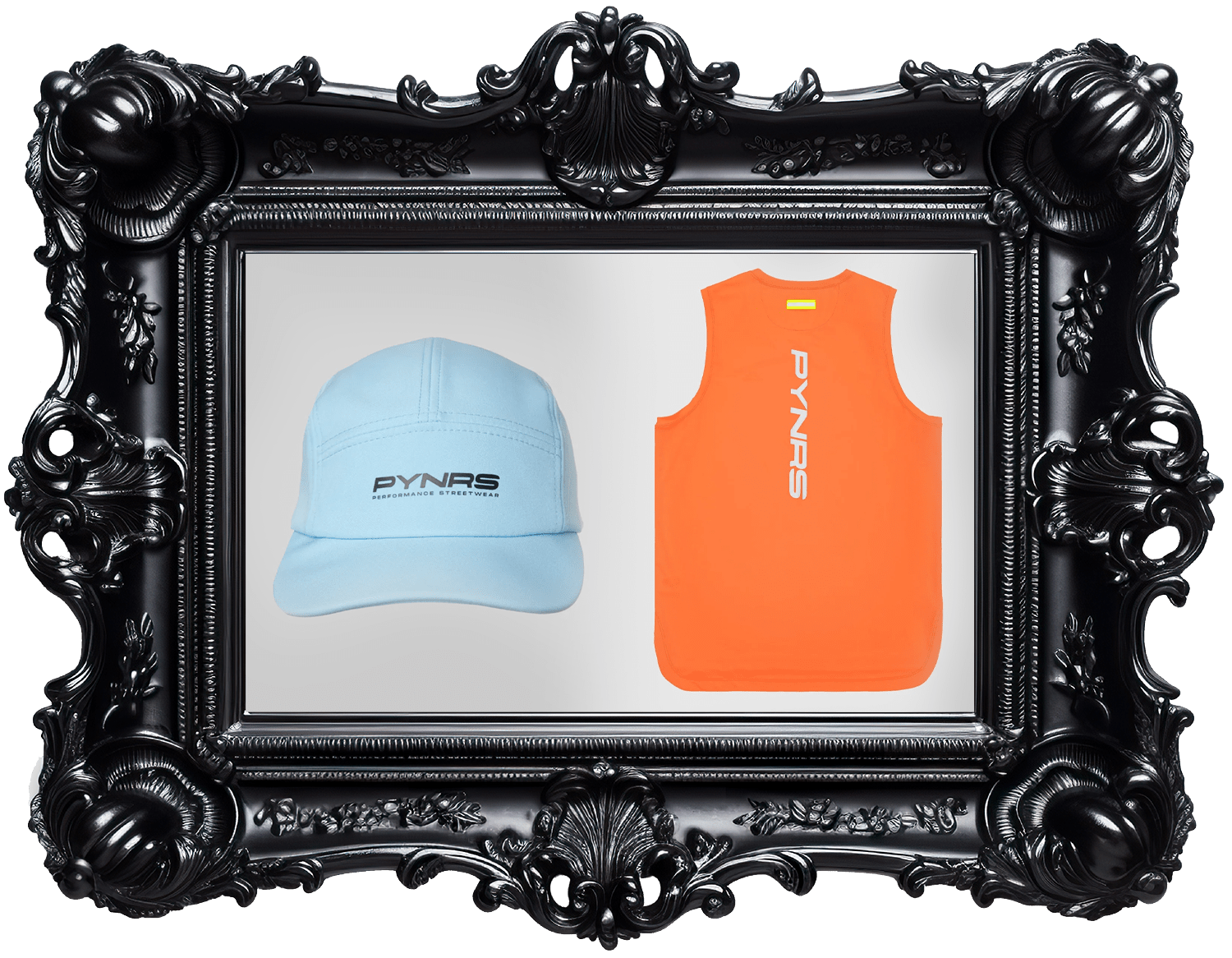
Emotionally Invigorating >>
Spin The Block >>
Sharp on the Streets
Last September, professional runner Erika Kemp went to Berlin so she could experience PYNRS’ Berlin Marathon activation and speak on a panel.
Kemp, a Brooks-sponsored athlete who holds the title of fastest American-born Black female marathoner, is accustomed to the time-oriented, hyper competitive world of elite racing, yet was all-in on the complete opposite vibe that Baptista brought to Berlin.
PYNRS, Kemp said, “does such a good job of bringing a very welcoming energy, but also a hype to running. It’s not this super sterile, super technical thing of racing a marathon and chasing [personal bests] — there’s so much more and there’s such a big emotional component to running and getting people interested and excited about it.”
In that same vein, Greene described a typical PYNRS in-person activation as a combination of a family reunion, a party and a fitness club.
The major marathon activations with Brooks were just two of the many events that PYNRS has hosted in the last year, perhaps most notably its exceptionally popular Spin The Block Series in 11 cities including New York, Berlin, Chicago, Miami and Los Angeles.
Spin The Block is a relay that can be won in three ways: best team fashion, most energetic team and the fastest team. These are high octane, emotionally driven events in which speed takes a backseat to style and hype.
“Those things really come from crew culture,” Baptista noted. “That cheer zone energy, that finish at the end energy, or that ‘we want to come looking good’ energy. That’s directly for my community of people. Everything we do is for that experience.”
For Baptista, experience is everything – and Kemp, for one, was enthralled.
“PYNRS does a really good job focusing on the journey and the culture around these events,” she said.
“You gotta be sharp on the streets to be able to do it the way Sid has done it,” Greene asserted. “I want him to get overly possessive of the action on the street, because he’s better at that than anybody.”
Greene emphasized that “The most important thing is that he’s serious. This is not a bullshit thing. The intention is for this brand to stick and be around.”

Ownership Over Influence >>
Ownership Informs Influence >>
Movements Don’t Pay Bills
Ownership is another community experience that has always been part of Baptista’s vision for PYNRS. He recently completed an SEC-sanctioned equity crowdfund that sold PYNRS shares for $250 a piece.
The fund closed in late 2024, having tapped 130 investors to raise the maximum amount of $124,000 and Baptista was subsequently inundated by over $10,000 in additional inquiry that he could not accept due to SEC regulations.
“Now I know where money is coming from,” he said.
This isn’t to say, however, that the equity crowdfund went as Baptista had hoped or expected.
“Early on, it got some love. We were attracting investors, but it wasn’t the Black and brown investors that I was thinking of attracting,” he admitted.
Baptista has endured enough instances of brands using his ideas and community for their own marketing purposes that “ownership over influence” has become a core value and tenet of PYNRS’ ethos.
While he has garnered influence over the last five years, he ultimately wants to create opportunities for people of color to generate wealth and become mainstays in the running industry.
And for better or worse, this equity crowdfund opened Baptista’s eyes to who is willing and able to throw money behind his brand and his vision, and, perhaps more importantly, who is not.
“I probably wasn’t talking about [the equity crowdfund] the right way to my community, because ownership is a luxury that people from my community, we didn’t grow up with,” he reflected. “And so, when you talk about ownership, it might feel a little unattainable versus joining a movement. We all grew up in communities that banded together and created movements. So maybe I can talk about it that way, instead of ownership.”
Pull up to one of PYNRS’ marathon activations or get into a Spin The Block relay event, and it’s undeniable that Baptista has created a movement. Unfortunately, movements don’t typically pay the bills – just ask Joe Yancey.
Greene, unknowingly echoing Yancey himself, said that “If budget wasn’t an issue, a lot of these things we wouldn’t even be talking about.”
Of course, hawking product helps the bottom line, and therein lies the crux of how PYNRS’ exceptional running-related experiences do not always equate to its high-quality running-related apparel flying off the shelves.
“We are an apparel company, so we do have to sell a product,” Baptista recognized.
He expects that the fall 2025 collection, which will feature new product lines, new accessories and the shoe, will be a game-changer in terms of legitimizing PYNRS as an apparel brand.
He emphasized that the money PYNRS does have goes directly back into the communities that the brand represents at its activations and events. “Whoever we hire [to manage and staff an activation], that money’s going right back into our community. It’s not like we’re just taking pictures of people of color and then filling the space with white people,” he said. “I really pride myself in making sure that, across the spectrum, we are centering the experiences of our people.”
Baptista has created a brand on its way to profitability in a crowded running apparel space while simultaneously galvanizing primarily non-competitive Black and brown runners – those whom Greene referred to as an ignored customer base — to inject a much-needed formula of joy and culture into the sport of running. Baptista has the ownership. He has the influence. Now he just needs the funding.
But it’s not a guaranteed conclusion that money will solve everything.
As Greene posited, “How do you stay legitimate, connected and authentic at the street level and also scale enough to drive a business and feed people at the same time? That’s the mission.”
PYNRS >>
The More Things Change, The More They Stay the Same >>
New York Pioneer Club
“We’ve had times when it was tough raising money, but I’m a stubborn man,” Joseph Yancey told the New York Times in February 1971. “At no time did I ever consider that the Pioneer Club would not be a going concern.”
The ease with which “Joseph Yancey” could be substituted with “Sidney Baptista” and “the Pioneer Club” with “PYNRS” in the reference above confirms that while so much about running, the running industry and society at large has changed since 1936, much has stayed the same.
“Money or not,” the 1971 article concludes, “the Pioneers will carry on. It’s never been in doubt to Joe Yancey.”
Once again, substitute “PYNRS” for “the Pioneers” and “Sid Baptista” for “Joe Yancey.”
The legacy continues: Baptista and PYNRS are upholding Yancey’s and the Pioneers’ commitment to inclusion, diversity, and ownership over influence in running – and they’re staying alive while doing it their way.

